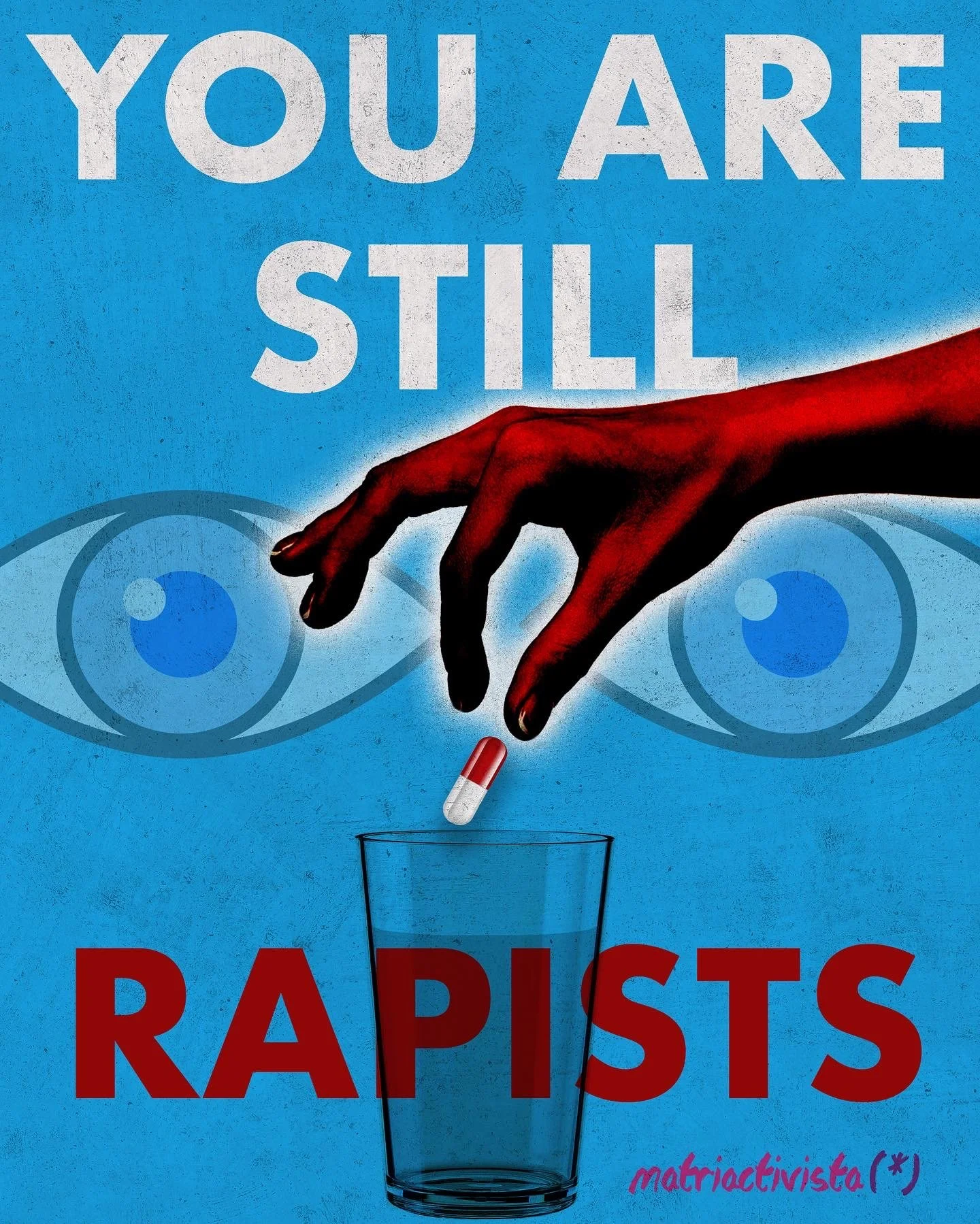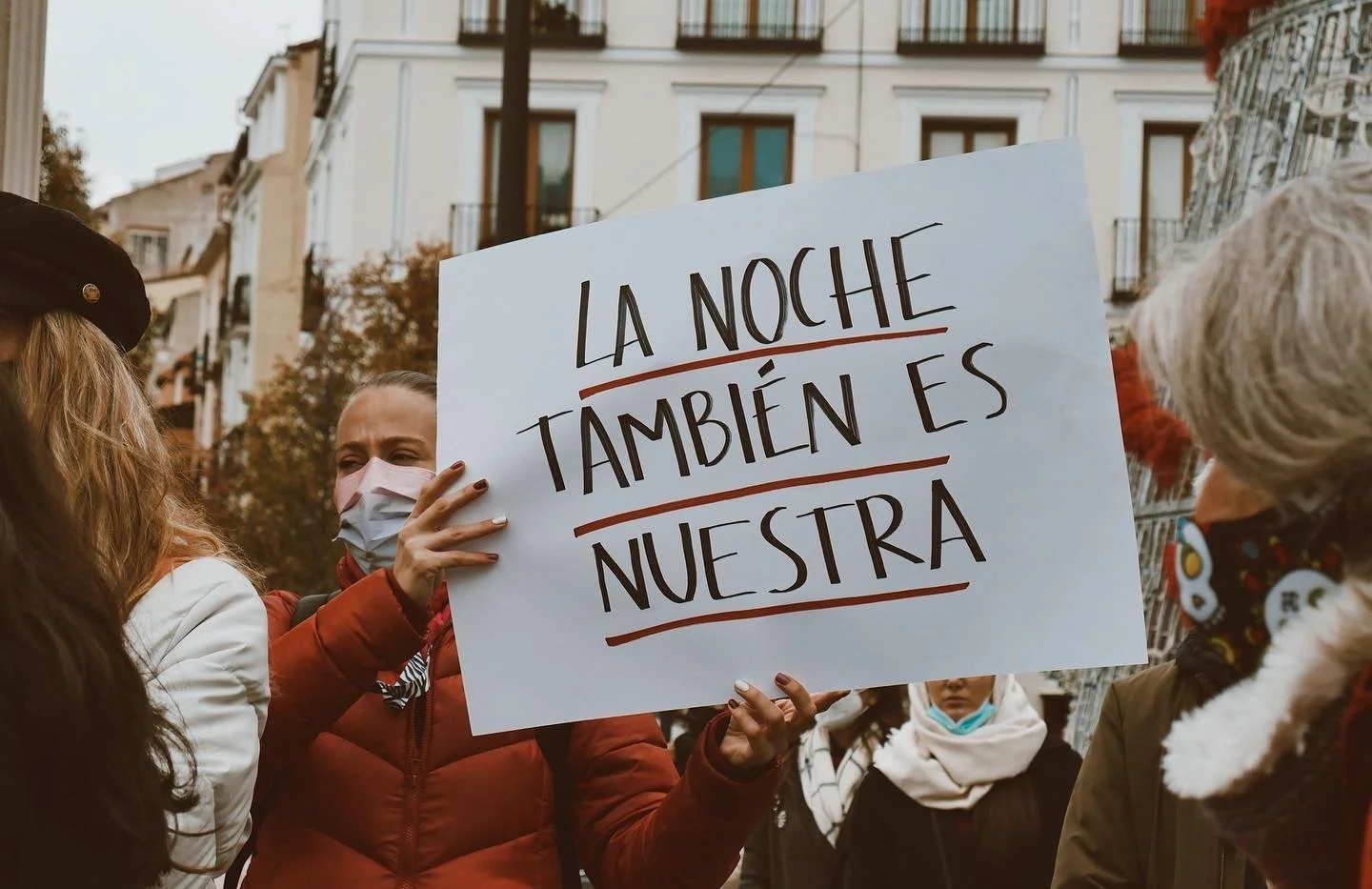We Need to Talk: Drug Rape in Spain
By Matriactivista
When I was 19 my flatmates, a couple of Spanish boys, invited me to a party in a sort of youth hostel in London. I will turn 47 this month and I am still in therapy about that party. Because I don’t remember how I went from entering the place to being raped by my flatmates and who knows who, in a dark room full of coats.
I remember the coats because the feeling of not being able to breathe still remains in my body, and has been triggered by wearing the mask in the pandemic. I woke up the next day feeling confused, not remembering as much as I do now, and here is the problem. I woke up confused but pre-programmed in the misogyny that put me in the centre not as a victim, but as perpetrator. I filled every gap with guilt and discomfort, did I drink too much? Did I give them the wrong idea? Did I end up in bed with one of them?
The most horrific thing is that I continued to live with them for a while.
©Rafael Ricoy Olariaga
Years later, reading about rohypnol and having more flashbacks and luckily more feminism, I came to realise with horror that I had been drugged and raped. But it was this year, after many other emotional issues and a new therapist that I finally stopped disassociating and integrating this suffering with what happened to me.
A couple of weeks ago a Spanish feminist influencer, Sindy Takinashi, shared in her instagram anonymously that one of her followers contacted her about an experience in a bar in Madrid where a waiter had drugged and raped her. Somehow simultaneously, a famous feminist who works in the 24-hour television channel, Montserrat Boix, tweeted about the Belgium women who had started a campaign called Balance ton Bar (report your bar) to demand safer places for women when we go out.
And all this has happened while another horrific rape case has unfold in the Spanish news. A 16-year-old was found almost dead and has now lost her hearing in one ear. The other details are far too horrific and I believe should remain private.
We women, angered once again started sharing our experiences, creating a petition, mobilising and an account of Denuncia tu bar (Spanish branch of Belgium initiative) was created to compile and share the stories of many women raped in Spain using all sorts of drugs in clubs and bars.
The night is also ours ©Andrea Boidi
While other women also came forward about the waiter in Madrid, and as a result the press came, and they picked up on it. Yesterday, an emergency demonstration organised by Takanashi, took place in Madrid, to raise awareness and demand the government to take urgent action on these matters, while also asking bars and clubs to understand our vulnerability and for hospital stuff to stop re-victimising and missing the obvious when women came to A&E appearing drunk and confused.
Even though it was a small gathering due probably to the last minute notice, it was on Spanish national television and hopefully a new and much needed discussion has been sparked.
Meanwhile on social media and in similar ways to the #metoo movement groups of accounts following the initiative of “balance ton bar” are also appearing in different cities and countries.
Where others want us to forget and ignore, we will remember and highlight. Where some will prefer us to remain quiet and isolated. We will talk and unite.
“Patriarchy is just like a bigger version of the abusive husband, and the first thing the abusive husband does is to detach you from your close networks because they will give you the right parameters of reality to understand your oppression. ”
And even though none of this is our responsibility and having to also fight it is exhausting, I do feel that we need to talk more about ourselves, amongst ourselves, and I know the time to share certain things is a very personal matter. No one should feel pressurised but we shouldn’t be burdened with the shame and guilt that belongs to others. And our isolation and fragmentation of women as a collective is just another way of disempowerment. I always say that patriarchy is just like a bigger version of the abusive husband, and the first thing the abusive husband does is to detach you from your close networks because they will give you the right parameters of reality to understand your oppression.
So we do need to talk, to join forces, to share experiences, because then we realise that we are not alone, and we will remember how powerful we can be together.
And as we now know the networks of women are knitted with infinite and indestructible threads.
I was not be able to be in Madrid yesterday, but I have already thanked the woman who talked to Sindy. Sindy, the women from @denunciatubar, and the feminist journalists who interviewed me with urgency to amplify this, I did thank them all in my name and on behalf of my daughters future because I can finally shout that what they did to me at 19 was a crime and because I refuse for my past to be my daughter’s future.


